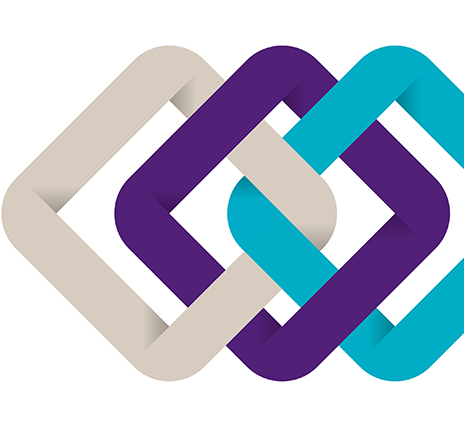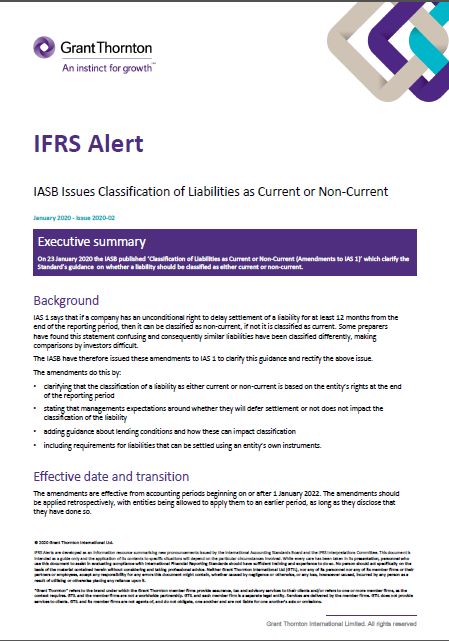IASB issues Classification of Liabilities as Current or Non-current (Amendments to IAS 1)
This Accounting Alert is issued to circulate the new amendments published by the International Accounting Standards Board (IASB) on classification of liabilities as current or non-current.
Background
IASB's aim in the amendments is to promote consistency in applying the requirements by helping companies determine whether, in the statement of financial position, debt and other liabilities with an uncertain settlement date should be classified as current (due or potentially due to be settled within one year) or non-current. The amendments clarify, not change, existing requirements, and so are not expected to affect companies' financial statements significantly.
Specifically, the amendments:
- clarify that the classification of a liability as either current or non-current is based on the entity's rights at the end of the reporting period;
- states that management's expectations around whether they will defer settlement or not does not impact the classification of the liability;
- adds guidance about lending conditions and how these can impact classification; and,
- includes requirements for liabilities that can be settled using an entity's own instruments.
Effectivity Date and Transition
The amendments could result in companies reclassifying some liabilities from current to non-current, and vice versa, and which could affect their compliance with company's loan covenants. Thus, to give companies time to prepare for the amendments, the IASB has set the amendments to be effective from accounting periods beginning on or after 1 January 2022. The amendments should be applied retrospectively, with early application of the amendments permitted.
Please refer to the attached IFRS Alert for a summary of the amendments to IAS 1.
See attached copy of this article for further details.

